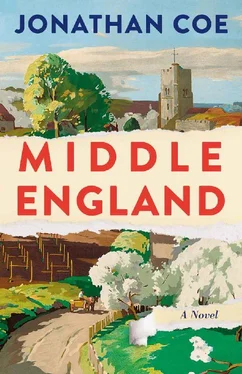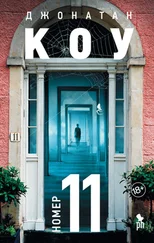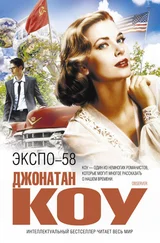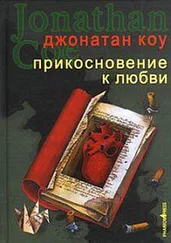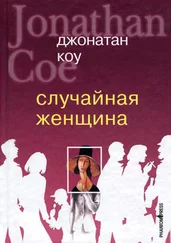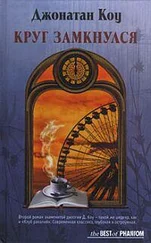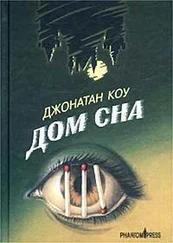Джонатан Коу - Middle England
Здесь есть возможность читать онлайн «Джонатан Коу - Middle England» весь текст электронной книги совершенно бесплатно (целиком полную версию без сокращений). В некоторых случаях можно слушать аудио, скачать через торрент в формате fb2 и присутствует краткое содержание. Год выпуска: 2018, ISBN: 2018, Издательство: Penguin Books Ltd, Жанр: Старинная литература, на английском языке. Описание произведения, (предисловие) а так же отзывы посетителей доступны на портале библиотеки ЛибКат.
- Название:Middle England
- Автор:
- Издательство:Penguin Books Ltd
- Жанр:
- Год:2018
- ISBN:9780241981320
- Рейтинг книги:5 / 5. Голосов: 1
-
Избранное:Добавить в избранное
- Отзывы:
-
Ваша оценка:
- 100
- 1
- 2
- 3
- 4
- 5
Middle England: краткое содержание, описание и аннотация
Предлагаем к чтению аннотацию, описание, краткое содержание или предисловие (зависит от того, что написал сам автор книги «Middle England»). Если вы не нашли необходимую информацию о книге — напишите в комментариях, мы постараемся отыскать её.
Middle England — читать онлайн бесплатно полную книгу (весь текст) целиком
Ниже представлен текст книги, разбитый по страницам. Система сохранения места последней прочитанной страницы, позволяет с удобством читать онлайн бесплатно книгу «Middle England», без необходимости каждый раз заново искать на чём Вы остановились. Поставьте закладку, и сможете в любой момент перейти на страницу, на которой закончили чтение.
Интервал:
Закладка:
‘ Exactly . You see how much they have in common? Wasn’t it brilliant, watching them that first day together in the Rose Garden? Larking about for the cameras, having a laugh …’
‘So there’s no ideological divide?’
Nigel frowned for a moment. ‘Well, Dave went to Eton, and Nick went to Westminster. That’s a pretty big difference, I can see that.’ He soon brightened, however. ‘But honestly, Douglas – or can I call you Doug, now?’
‘Sure, why not?’
‘Honestly, Doug, you should hear the bantz between them at the cabinet table.’
‘Hear the what, sorry?’
‘The banter. Bantz.’
‘Banter?’
‘The jokes, the laughs, the mickey-taking. Believe me, I’ve heard a lot of this kind of stuff, especially at uni, and we’re talking top banter here.’
‘Let me get this straight – you’re referring to … cabinet discussions?’
‘Absolutely.’
‘So a few days ago there were thousands of young people out on the streets of London, protesting about huge rises in tuition fees, which Nick Clegg promised not to support and is now supporting, and in the meantime the new chancellor is announcing massive cuts to public spending, and you tell me that basically this is all being driven by … banter?’
Nigel hesitated. He seemed nervous about how his next remark would be received. ‘Doug, don’t take this the wrong way, but I think this is a generational thing. We’re talking about a generational divide. You and your friends and my dad were brought up in a certain way. You’re used to an antagonistic form of party politics. But Britain’s moved on. The old system’s broken now. May 6th showed us that. On May 6th Britain was asked to choose a new direction and the people spoke with a loud, unanimous, decisive voice and what they said could hardly have been clearer. They said, “We don’t know.” ’ He smiled pleasantly in response to Doug’s bewildered silence. ‘ “We don’t know,” ’ he repeated, shrugging and spreading his hands. ‘Two years ago the world experienced a terrible financial crisis and nobody knows how to deal with it. Nobody knows the way forward. I call it radical indecision – the new spirit of our times. And Nick and Dave embody it perfectly.’
In a mechanical response, Doug nodded his agreement, but deep down he couldn’t tell whether Nigel was joking or not. It was to become an increasingly familiar feeling over the next few years.
4.
December 2010
The letter from West Mercia police dropped on to Sophie’s mat one late-October morning. Cameras had caught her vehicle on Streetsbrook Road, doing thirty-seven miles per hour in a thirty-mile limit. She was offered a choice between putting three points on her licence or paying £100 to attend a Speed Awareness Course. Naturally, she chose the latter.
Her appointment was for two o’clock in a faceless office block on Colmore Row, early in December. She arrived and was shown to a reception area on the ninth floor, equipped with two machines selling fizzy drinks and chocolate bars, and two dozen chairs arranged against the walls in a square. Most of these chairs were occupied when she entered the room. There were men and women of all ages, and all skin colours. A few wry, muttered, half-humorous conversations were taking place. The atmosphere in the room reminded her of school: boys and girls who had been caught out in minor misdemeanours and were now waiting outside the headmaster’s study to receive their punishment. Sophie chose not to sit down, but wandered over to one of the grime-covered windows and looked out over the city, the shopping malls and high-rises, the old rows of terraced houses in the distance and, further still, the concrete tangle of Spaghetti Junction, all looking grey and blurry in the weak afternoon light.
‘Right, everybody,’ said a young, energetic male voice, behind her. ‘Could you all follow me, please, and we’ll take our seats and get started.’
Sophie had not seen who the speaker was. She followed the shuffling line of people into the next room, which was set up like a classroom, with bench seating, desks and a screen at the front for PowerPoint presentations. The overhead strip lighting was fierce and joyless. At the front of the class a tall, well-built man was standing with his back to them, arranging some papers on a table. Then he turned round.
‘Good afternoon, everyone,’ he said. ‘My name is Ian and I’m going to be your facilitator for this afternoon’s session. And this is my colleague Naheed.’
The door at the back had opened and a very striking woman – almost as tall as Ian, probably only in her thirties but with frizzy, shoulder-length hair already streaked with grey – advanced up the aisle between the two rows of desks. She leaned back very slightly as she walked, carrying herself with confidence, smiling hellos to the people sitting on either side of her. The smiles were challenging and combative. Sophie liked the look of her at once, and thought that it must take balls for a woman like that to stand up in a room full mostly of men, mostly of white men, and take them to task for their driving errors.
Neither of these instructors, in fact, fitted her expectations at all. Ian, far from being the elderly, finger-wagging pedagogue she had rather unkindly been picturing in her mind, seemed to be in his mid-to late-thirties, with the build of a rugby player, a welcoming, open face with a fine bone structure and distractingly long eyelashes. This feature, in particular, drew most of her attention while he was making his preliminary remarks, although she managed to focus again when he started asking everyone in the room to describe their speeding offences, and to say something in their own defence if they could. He listened to each answer with perfect gravity and attentiveness; whereas with Naheed, the smile never quite left her lips, and the amused glint never quite left her eyes.
The answers themselves were interesting. As Sophie listened to the speakers, so different in age, class, gender and ethnicity, all with such different stories to tell, she realized that they were in fact united by one common factor: a profound and abiding sense of injustice. Whether they had been exceeding the speed limit in order to keep an urgent appointment, or (in one case) to take a sick relative to hospital, or (in another) because they’d bought a Chinese takeaway and wanted to get home before it went cold, or perhaps had simply arrived at their own, personal judgement that the speed limit was unreasonable and they were going to ignore it, they all burned with a righteous sense of indignation, a feeling that they had been singled out, picked on, by malign, unseen forces: forces drunk on their own power, and determined to bolster that power by making life difficult for ordinary citizens who had been caught doing nothing worse than pursuing the blameless objects of their daily lives. The whole room was heavy with this feeling. It smelled of victimhood.
Sophie was determined to have no part of it. As chance would have it, she was the last person to be asked to give an account of herself, and she decided she was going to buck that trend, come what may.
A few seconds later Ian was turning his attention to her, and Naheed too, from the front of the room, was asking her, with those mischievous, questioning eyes, to share her story with the instructors and with her fellow miscreants.
‘Well, there’s not much to tell,’ she said. ‘I was driving in a thirty-mile-an-hour limit. According to the letter I got, I was doing thirty-seven miles an hour. So that’s that.’
‘So why were you speeding, do you think?’ Ian asked. ‘Any particular reason?’
Sophie hesitated for a short moment. It would be so easy to trot out the obvious explanation: she had thought she might miss her train. How boring was that? She was not prepared to play the innocent. And besides, she had decided that she wanted to make an impression on Ian, somehow.
Читать дальшеИнтервал:
Закладка:
Похожие книги на «Middle England»
Представляем Вашему вниманию похожие книги на «Middle England» списком для выбора. Мы отобрали схожую по названию и смыслу литературу в надежде предоставить читателям больше вариантов отыскать новые, интересные, ещё непрочитанные произведения.
Обсуждение, отзывы о книге «Middle England» и просто собственные мнения читателей. Оставьте ваши комментарии, напишите, что Вы думаете о произведении, его смысле или главных героях. Укажите что конкретно понравилось, а что нет, и почему Вы так считаете.
